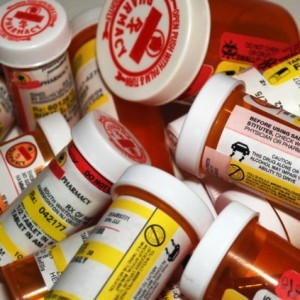A bipartisan bill introduced in the U.S. Senate earlier this week aims to prevent behemoth pharmaceutical companies from strong-arming marketplace competition.
Specifically, the CREATES Act would ensure these giant pharmaceutical companies wouldn’t be able to use safety rules to prevent generic drugs from coming to market, according to the four senators who introduced the bill June 14.
At the same time, generic drug companies would be allowed to sue the big pharmaceutical manufacturers that refuse to sell them drug samples.
“The CREATES Act lowers the cost of generic drugs getting to the market by preventing brand-name drug companies from misusing existing regulations to deny generic drug companies the samples they need to get generic drugs approved for the market," Conn Carroll, communications director for U.S. Sen. Mike Lee (R-UT), told American Pharmacy News today.
Lee, along with U.S. Sens. Chuck Grassley (R-IA), and Democrats Patrick Leahy of Vermont and Amy Klobuchar of Minnesota, co-sponsored the proposed bill in response to complaints about the Food and Drug Administration’s (FDA) risk evaluation and mitigation strategy (REMS).
The REMS program is designed to ensure that the riskiest drugs on the market are dispensed safely, but generic manufacturers complain it’s being misused by the brand-name drug companies to prevent the generic companies from getting needed drug samples so that they can market cheaper versions.
Without these samples, generic drug manufacturers cannot comply with the FDA’s existing process for getting generic drugs approved for the market. And by delaying the entry of generic drugs into the market, drug companies then are able to charge higher monopoly prices for their drugs for longer periods of time, Geoffrey Manne, executive director of the International Center for Law and Economics (ICLE), a think tank that has come out in support of the bill, explained.
“The CREATES Act would mitigate the competitive leverage that brand manufacturers are currently able to exercise under the Food and Drug Administration Amendments Act's (FDAAA) imperfectly drafted REMS provisions," Manne said. "Unlike many other legislative fixes, Sen. Lee’s bill takes a narrow targeted approach to correcting problems directly, rather than creating a vast new scope of antitrust liability for drug manufacturers.”
The 2007 FDAAA empowered the FDA to demand an REMS from a drug manufacturer whenever new safety information came to light about one of their existing products, according to ICLE. Intended to increase patient safety, some drug companies soon learned they could use REMS to restrict distribution of their brand drugs, including refusing to sell samples to generic drug manufacturers.
Additionally, the generic companies have complained that their drugs are not allowed to share a safety protocol, another barricade that makes it difficult for them to get their products to market.
Not only would a generic drug company be able to file a lawsuit under the CREATES Act to force access to a sample, but the company also could sue to force negotiations for a safety protocol.
The result, according to Carroll, is that “this bill helps consumers and patients by making it easier for safe and effective generic drugs to reach the market,” which in turn will also lower drug costs for millions of Americans.
“Any congressman who has constituents who are concerned about high health care costs should support this bill," Carroll said.









 Alerts Sign-up
Alerts Sign-up